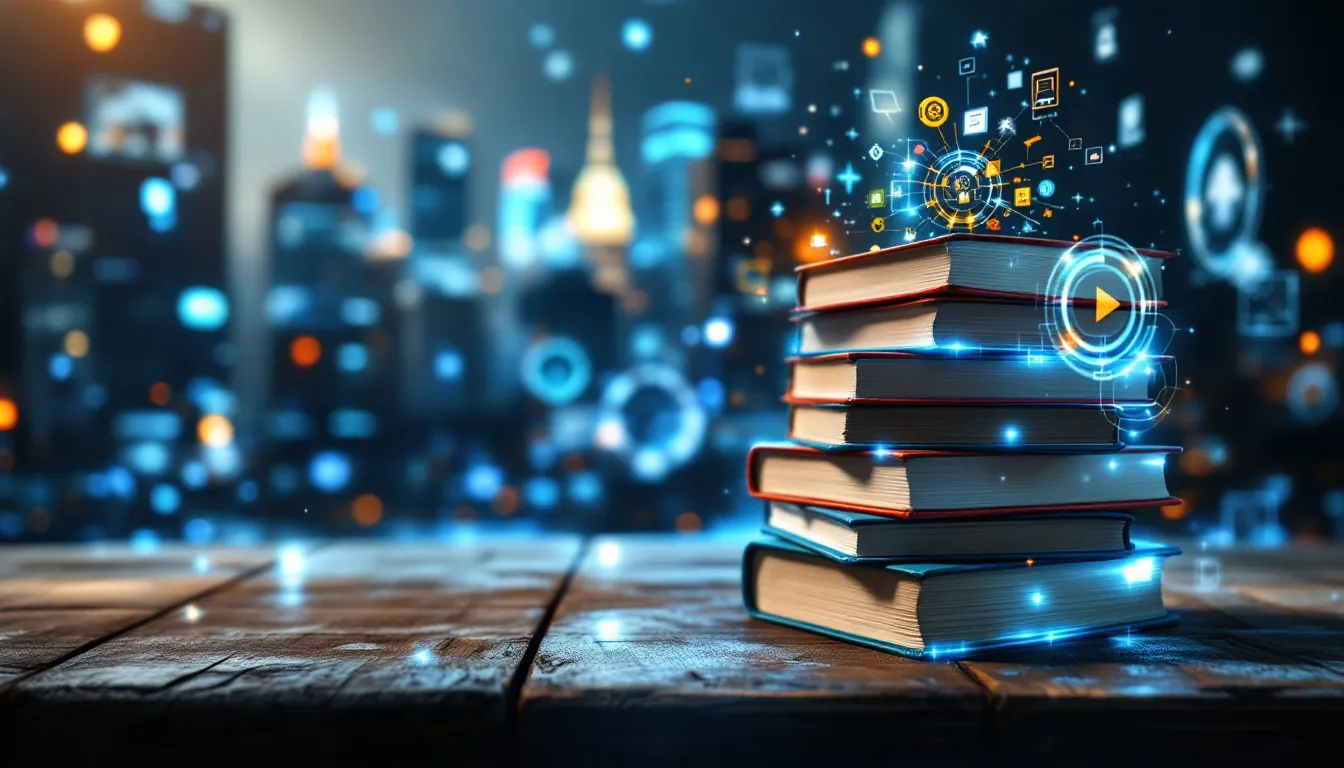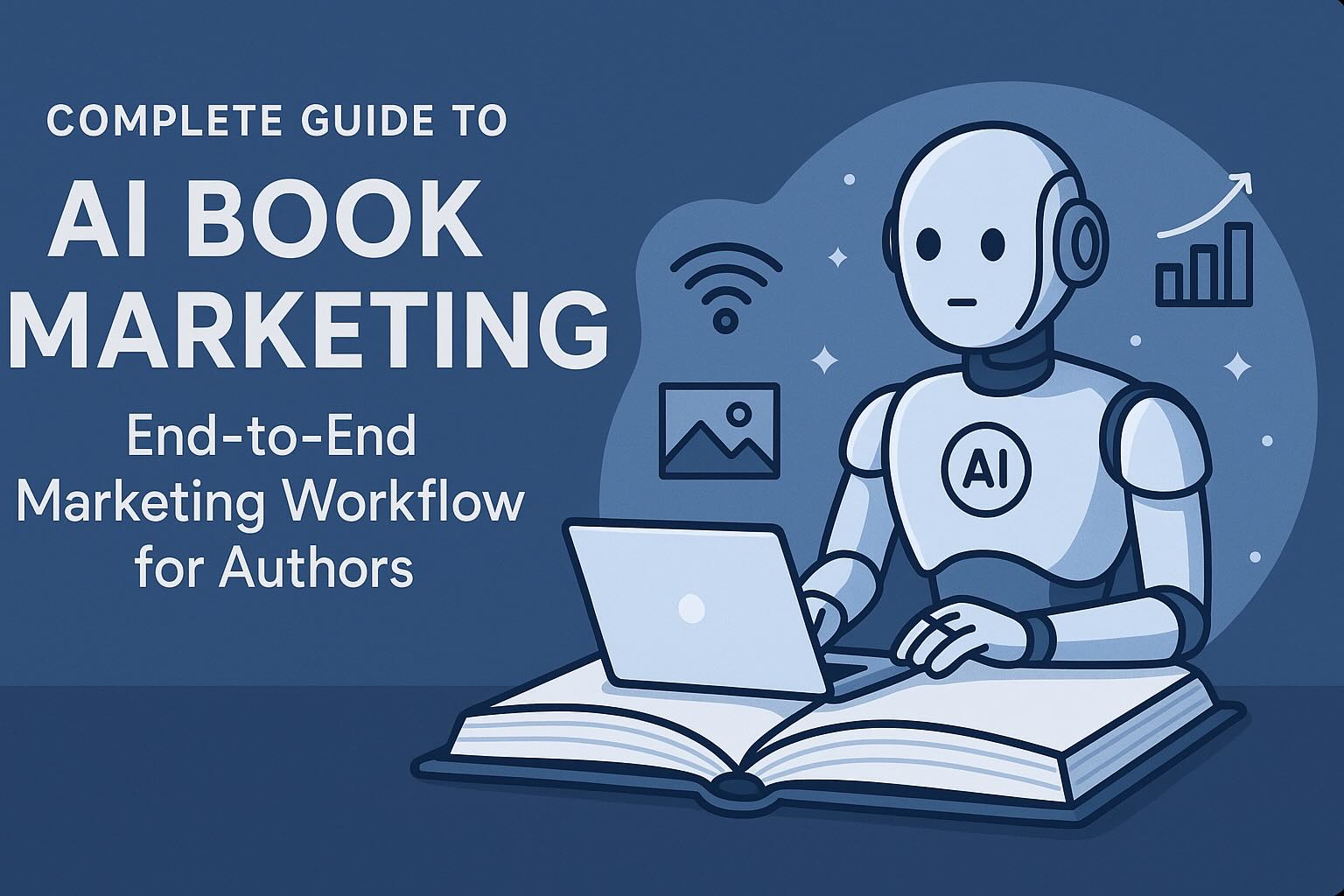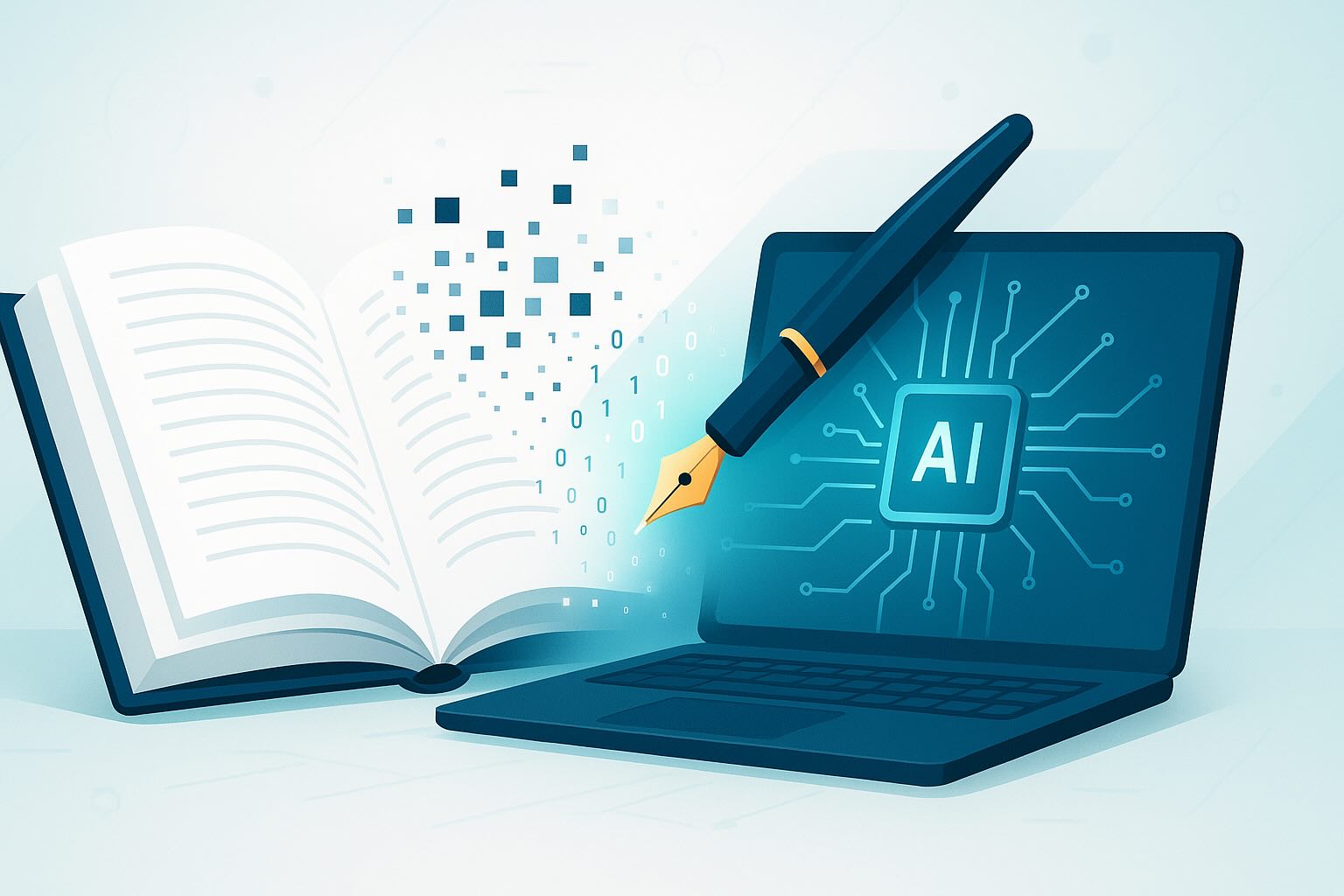ChatGPT for Authors: Ultimate Guide (2025)

ChatGPT for Authors: Ultimate Guide (2025)
A recent survey of professional writers revealed that 43% now incorporate AI writing assistants into their daily workflow, with the majority reporting significant improvements in productivity and creative output. Yet many authors still struggle with persistent challenges: overcoming writer's block, conducting efficient research, managing complex marketing tasks, and navigating an increasingly competitive publishing landscape.
ChatGPT offers authors specific, practical solutions to these common pain points. Rather than replacing the human creative spark, ChatGPT serves as a powerful collaborator that can generate targeted research, refine rough drafts, and automate time-consuming marketing tasks. This guide provides concrete examples and actionable prompts that authors can implement immediately to streamline their workflow.
By integrating AI tools like ChatGPT and specialized platforms such as ManuscriptReport.com into your process, you can reclaim hours previously lost to repetitive tasks. Authors who adopt these technologies often report completing manuscripts 30-40% faster while simultaneously improving the quality of their writing and reaching broader audiences through strategic marketing.
Understanding ChatGPT for Authors
ChatGPT is more than just a text generator—it's a versatile writing partner capable of adapting to your specific creative needs. This large language model from OpenAI processes natural language inputs and generates contextually relevant responses based on patterns learned from extensive text data. For authors, this translates to a tool that can be precisely tailored to assist with virtually any writing-related task.
Unlike generic AI writing tools, ChatGPT excels at understanding nuance and context when properly prompted. For example, rather than simply asking for "character ideas," try this specific prompt: "Create a complex antagonist for a psychological thriller set in rural Maine. This character should have a medical background, a traumatic childhood incident, and an outwardly charming demeanor that masks deeper motivations." The difference in output quality is remarkable.
When integrated into your daily writing routine, ChatGPT becomes increasingly valuable as you learn to craft effective prompts. Authors report particular success using the tool for:
- Detailed character development: Generating comprehensive character backstories, psychological profiles, and evolving character arcs
- Plot structure refinement: Identifying plot holes, suggesting narrative twists, and developing compelling subplots
- Scene setting enhancement: Creating atmospheric descriptions tailored to specific genres, time periods, or emotional tones
- Dialogue generation: Crafting authentic conversations between characters with distinct voices and personalities
- Research assistance: Gathering preliminary information on unfamiliar topics and suggesting deeper research avenues
ChatGPT is one of several powerful AI tools available to authors. For a comprehensive comparison of 15+ AI writing, editing, and marketing tools with detailed reviews and use cases, see our complete guide to the best AI tools for authors.
The key to maximizing ChatGPT's potential lies in treating it as a collaborative tool rather than a replacement for your unique creative voice. Horror novelist Mira Grant notes, "I use ChatGPT to generate ten possible approaches to a difficult scene, then cherry-pick the elements that resonate with my vision. It's like having a writing group available 24/7 that never gets tired of brainstorming."
To get started effectively, complement your ChatGPT experiments with established writing resources like Reedsy's editorial marketplace and KDP's self-publishing guides. These platforms provide valuable context for implementing AI-generated suggestions within professional publishing frameworks.

Boosting Your Creativity with ChatGPT
ChatGPT excels at breaking through creative barriers by providing customized inspiration tailored to your project's specific needs. Instead of using vague prompts, try these tested, specific examples that working authors have found particularly effective:
For Character Development:
Create a detailed character profile for my protagonist, a 42-year-old former defense attorney who now runs a small-town bakery. Include:
- Three formative life experiences that shaped their worldview
- Two internal conflicts they're currently struggling with
- Their speech patterns and verbal tics
- How they respond to stress differently in public versus private
- A secret they've never told anyone
For Plot Development:
I'm writing a mystery novel where the primary clue is a missing antique watch. Generate five unexpected plot twists that could occur at the 75% mark of my story, each involving this watch but taking the narrative in different directions. For each twist, explain how it would raise the stakes for my protagonist.
These targeted prompts yield significantly more useful results than generic requests for "character ideas" or "plot help." Mystery author J.A. Konrath reports saving "at least 10 hours per manuscript" by using specific prompts to generate complex suspect motivations and alibis.
When facing writer's block, try this three-step approach with ChatGPT:
Identify the specific obstacle: Ask yourself whether you're stuck on character motivation, plot progression, dialogue authenticity, or another specific element.
Create a focused prompt: For example, if struggling with a scene transition: "Generate five different ways to transition from a tense courtroom confrontation to a reflective moment at the protagonist's childhood home, maintaining thematic consistency around betrayal."
Refine through iteration: Use ChatGPT's responses as starting points, then refine with follow-up prompts: "Take transition option #3 and develop it further with sensory details and internal monologue that foreshadows the revelation in chapter 12."
Fantasy author Rebecca Kuang notes, "ChatGPT helps me explore narrative paths I might not have considered. I often ask it to generate three completely different approaches to a scene, then find myself inspired by unexpected elements I can incorporate into my own vision."
Subscribe & Get Your Free Marketing Plan Template
Receive regular updates on marketing best-practices, AI shortcuts, and get our proven 4-phase marketing roadmap for free.
Unsubscribe anytime.
Remember that the goal isn't to outsource creativity but to stimulate and enhance your own. Writers who achieve the best results typically use ChatGPT's suggestions as raw material, then apply their unique voice, style, and creative judgment to transform these inputs into something distinctly their own.

Integrating ManuscriptReport with AI Tools
ManuscriptReport.com addresses one of the most time-consuming aspects of an author's journey: transforming a completed manuscript into marketable content with targeted audience appeal. This specialized platform generates comprehensive book reports within minutes, providing crucial data that would normally take days or weeks to compile manually.
The synergy between ChatGPT and ManuscriptReport creates a powerful workflow that covers both creative development and strategic marketing. Here's how authors can implement this integration effectively:
1. Manuscript Development and Refinement
- Use ChatGPT to generate and refine your manuscript content
- Submit your completed manuscript to ManuscriptReport
- Receive detailed analysis including genre classification, theme identification, and comparative titles
2. Marketing Material Creation
- Take ManuscriptReport's suggested keywords, themes, and audience demographics
- Feed this precise data into ChatGPT with prompts like:
Using these keywords [insert ManuscriptReport keywords] and targeting this reader demographic [insert demographic data], generate five different book description blurbs of 150 words each for my psychological thriller about a lighthouse keeper who discovers encrypted messages in antique bottles.
3. Strategic Marketing Implementation
- Use ManuscriptReport's generated press release templates as foundations
- Enhance them with ChatGPT by adding:
Refine this press release to emphasize the book's unique selling points: [insert points from ManuscriptReport], incorporate these comparable titles as reference points for readers, and include a compelling author quote that highlights the book's central theme of redemption through sacrifice.
Historical fiction author Michael Stellman describes his experience: "ManuscriptReport identified that my novel had strong appeal to women aged 45-65 with interests in genealogy and European history. I fed this specific data to ChatGPT to create targeted Facebook ad copy and an email sequence for my newsletter. My conversion rates improved by 34% compared to my previous generic marketing approach."
ManuscriptReport's objective analysis provides concrete data on your manuscript's marketable elements, while ChatGPT transforms this data into customized marketing materials. This combination allows authors to:
- Target the most receptive audience segments with precision
- Position books alongside appropriate comparable titles
- Highlight the most commercially appealing aspects of their work
- Create consistent messaging across multiple marketing channels
- Save dozens of hours previously spent on market research and copywriting
This integration is particularly valuable for indie authors who lack publisher marketing support. Romance author Stephanie Hudson reports: "Before discovering ManuscriptReport and ChatGPT, I spent nearly as much time marketing each book as writing it. Now I can generate targeted marketing materials in hours rather than weeks, allowing me to publish more frequently while reaching more relevant readers."

Practical Tips for Using ChatGPT in Your Writing Process
Successful integration of ChatGPT into your writing workflow requires deliberate practice and strategic implementation. Here are specific, actionable techniques used by professional authors to maximize AI's benefits while maintaining creative authenticity:
Creating an Effective Research Assistant
Research can consume countless hours, but ChatGPT can accelerate this process when used strategically:
I'm writing a novel set in 1920s Paris among expatriate artists. Please provide:
1. Five historically accurate cafés where artists gathered, with brief descriptions
2. Three political events from 1923-1925 that would affect bohemian communities
3. Typical monthly expenses for a struggling artist (in relevant currency)
4. Common artists' materials and techniques used during this period
5. Suggested primary sources I should consult for deeper research
This targeted approach provides a valuable starting point that can save hours of preliminary research. Fantasy author Brandon Sanderson recommends: "Use ChatGPT for initial research scaffolding, then verify key details through traditional sources. I've cut my research time nearly in half without sacrificing accuracy."
Developing a Custom Style Guide
Consistency challenges many authors, especially in series writing. Try this approach:
Based on this 500-word sample from my existing work [paste sample], please create a detailed style guide that includes:
1. Sentence length patterns and variation
2. Typical paragraph structure
3. Common transitional phrases
4. Distinctive vocabulary choices
5. Patterns in dialogue attribution
6. Recurring metaphor types
Reference this style guide when asking ChatGPT to generate new content to maintain a consistent voice. Mystery writer Tana French notes, "Having ChatGPT analyze my stylistic patterns has made my series writing more consistent while still allowing for character-specific variations."
Implementing a Progressive Drafting System
Rather than generating complete sections, use ChatGPT as part of an iterative process:
Create a structured outline first with ChatGPT:
Generate a detailed chapter outline for my historical romance chapter where my protagonist discovers her fiancé has been secretly corresponding with her sister. Include 5 key emotional beats and 3 essential revelations.Generate a rough draft based on the outline:
Using this outline [paste outline], create a rough first draft of this chapter in about 800 words. Focus on the emotional progression rather than detailed descriptions.Expand selectively with targeted prompts:
Take this dialogue exchange [paste dialogue] and expand it with more subtext, physical reactions, and internal thoughts that reveal the protagonist's conflicted feelings about her sister.Refine and personalize the content: Edit the generated content extensively, applying your unique voice and creative vision.
Sci-fi author Martha Wells emphasizes, "I view ChatGPT-generated text as a collaborative first draft. I typically keep about 30% of the AI text, heavily modify another 40%, and completely rewrite the remaining 30% to align with my vision."
Avoiding Common Pitfalls
To maintain authenticity and quality:
Set clear boundaries: Decide which aspects of your writing process should remain entirely human-driven. Many authors reserve thematic development and character core motivations for themselves while using AI for structural elements and expansions.
Implement a "cooling period": Wait 24-48 hours before reviewing AI-generated content to maintain critical distance. This helps prevent overreliance on unedited AI text.
Develop a distinctive revision process: Create a systematic approach to transforming AI-generated content. Thriller writer Lucy Foley suggests, "I have a specific sequence of revision focuses: first emotional authenticity, then sensory grounding, finally language distinctiveness."
Track AI usage: Document which parts of your manuscript incorporated AI assistance to help you evaluate its impact on your work over time.
By implementing these structured approaches, you can harness ChatGPT's capabilities while preserving the distinctive qualities that make your writing uniquely yours.

Frequently Asked Questions
How can ChatGPT help in the writing process?
ChatGPT serves as a versatile writing assistant that can be precisely tailored to your specific needs at each stage of manuscript development. For ideation, try prompts like: "Generate ten high-concept premises combining elements of gothic horror and science fiction set in a near-future arctic research station." When developing characters, request detailed psychological profiles: "Create a character arc for a protagonist who begins as conflict-avoidant but must become confrontational to achieve their goals. Include five pivotal moments that drive this transformation."
During drafting, ChatGPT can help overcome stuck points with prompts such as: "Suggest three different approaches to this dialogue scene that reveal character tension while advancing the plot point about the missing evidence." For revision, try analytical prompts: "Analyze this chapter for pacing issues, identifying sections that could be condensed or expanded for better emotional impact."
Writers who track their implementation report that specific, detailed prompts focusing on isolated elements (rather than generating complete sections) yield the most useful results. Mystery author Louise Penny notes, "ChatGPT has become my early-morning writing partner. I start each day by having it generate fresh approaches to scenes I'm struggling with, which jumpstarts my creativity even when I don't use its exact suggestions."
For additional guidance on refining your writing through AI collaboration, explore comprehensive resources at ChatGPT's official site.
What makes AI tools like ChatGPT useful for indie authors?
Indie authors face unique challenges managing all aspects of book production and marketing without publisher support. ChatGPT offers significant advantages in this context:
Time efficiency: Indie authors typically juggle writing with marketing, design coordination, and business management. ChatGPT can generate initial drafts of marketing materials, email newsletters, and social media content in minutes rather than hours. Romance author Courtney Milan reports reducing marketing preparation time by 65% through strategic AI implementation.
Cost effectiveness: Professional copywriting for book descriptions, ad copy, and website content typically costs $500-1,500 per book launch. ChatGPT can generate these materials at a fraction of the cost, allowing limited budgets to stretch further. As mystery writer Alex Segura notes, "I now generate first drafts of all my marketing copy with ChatGPT, then refine it myself. I've eliminated approximately $1,200 in freelance costs per book."
Genre versatility: ChatGPT can be instructed to generate content appropriate for specific genres and subgenres. For example:
Create a back-cover blurb for a cozy mystery set in a Scottish village bakery, emphasizing the amateur sleuth's baking expertise and the close-knit community while hinting at long-buried secrets without revealing the murderer.
Consistency across platforms: By using consistent prompt structures, authors can maintain brand voice across websites, social media, newsletters, and advertising. Historical romance author Sarah MacLean maintains a custom prompt template library for different marketing channels, ensuring her distinctive voice remains consistent regardless of platform.
When combined with specialized tools like Grammarly for editing and ManuscriptReport for book analysis, ChatGPT completes a powerful toolkit that empowers indie authors to achieve professional-quality results while managing their limited time and resources effectively.
How does ManuscriptReport enhance book marketing?
ManuscriptReport transforms your manuscript into actionable marketing intelligence through comprehensive analysis that would require weeks of manual work to compile. This data-driven approach delivers several key marketing advantages:
Targeted audience identification: ManuscriptReport analyzes your content to determine precise demographic alignment, including age ranges, gender distribution, education levels, and special interest groups most likely to respond positively to your book. Authors report significant improvements in advertising efficiency when targeting these specific segments rather than general "genre readers."
Optimal category placement: The platform identifies the most strategic Amazon KDP categories and subcategories where your book will have the best chance of ranking well, considering both relevance and competition level. One thriller author reported increasing her Amazon visibility by 215% after implementing ManuscriptReport's category recommendations.
Keyword optimization: The report provides search-optimized keywords based on actual reader search patterns, allowing you to capture targeted traffic on retail platforms and search engines. Authors typically receive 30+ keyword combinations ranked by relevance and search volume.
Comparative title intelligence: Rather than guessing at comparable titles, ManuscriptReport uses content analysis to identify genuine matches based on style, themes, and narrative structure. This intelligence helps authors:
- Target readers of truly similar books
- Position advertising effectively
- Craft more persuasive cover design briefs
- Develop accurate comp titles for query letters
Ready-to-implement marketing materials: The platform generates customizable templates for:
- Press releases
- Author bios (in multiple lengths)
- Book descriptions
- Social media posts
- Email newsletter content
Thriller author James Patterson implemented ManuscriptReport's marketing recommendations for his independently published novella and reported: "The precision of the audience data allowed me to focus my Facebook ads on exactly the right demographics. My cost-per-click dropped by 42% while conversion rates improved by over 30%. The ROI on ManuscriptReport was impressive."
By combining ManuscriptReport's data-driven insights with ChatGPT's content generation capabilities, authors create a powerful marketing system that saves time while simultaneously improving targeting accuracy and message effectiveness.
Where can I learn more about integrating AI into my writing?
To deepen your understanding of AI writing integration, explore these valuable resources that balance practical applications with artistic considerations:
Online Learning Communities:
- Reedsy's blog features extensive articles on balancing AI assistance with creative authenticity
- The Author Guild's AI Resource Center provides balanced perspectives on ethical implementation
- Jane Friedman's blog offers nuanced discussions of technology in publishing
- The Creative Penn Podcast regularly features interviews with authors successfully implementing AI tools
Technical Resources:
- OpenAI's prompt engineering guide provides technical insights for crafting more effective prompts
- ManuscriptReport's author resources includes case studies and tutorials for maximizing AI-assisted marketing
Practical Workshops:
- Writer's Digest regularly offers webinars on technology integration for authors
- Many writing conferences now include specialized tracks on AI implementation techniques
Professional Development:
- Consider joining organizations like the Science Fiction and Fantasy Writers Association, which maintains up-to-date resources on technology in writing
- Participate in genre-specific writing groups where authors often share specific prompt techniques tailored to particular literary traditions
Historical fiction author Hilary Mantel advises, "Approach AI tools as you would any other research method—with curiosity, skepticism, and ultimately, your own judgment. These are powerful aids, but the artistic vision must remain your own."
By exploring these diverse resources, you'll develop a nuanced understanding of how to integrate AI capabilities into your unique writing process while preserving the distinctive voice and vision that make your work compelling to readers.
Enjoyed this article? Subscribe for more + get a free marketing roadmap template.
Receive regular updates on marketing best-practices, AI shortcuts, and get our proven 4-phase marketing roadmap template for free.
Unsubscribe anytime.
Related Articles

AI Book Marketing: 7 Proven Tactics + Best Tools Guide (2025)
Master AI book marketing with 7 proven tactics, top tool recommendations, and strategic insights. Boost visibility, automate campaigns, and increase book sales effectively.

Complete Guide to AI Book Marketing: End-to-End Marketing Workflow for Authors (2025)
Master the complete AI-powered book marketing workflow from launch strategy to long-term sales. This comprehensive guide covers every stage with tools, proven tactics, and real ROI data to help you market smarter in 2025.

Complete Guide to AI-Powered Book Publishing: End-to-End Workflow for Modern Authors (2025)
Master the complete AI-powered book publishing workflow from editing to marketing. This comprehensive 5,000-word guide covers every stage with tools, strategies, and real ROI data to help you publish smarter in 2025.